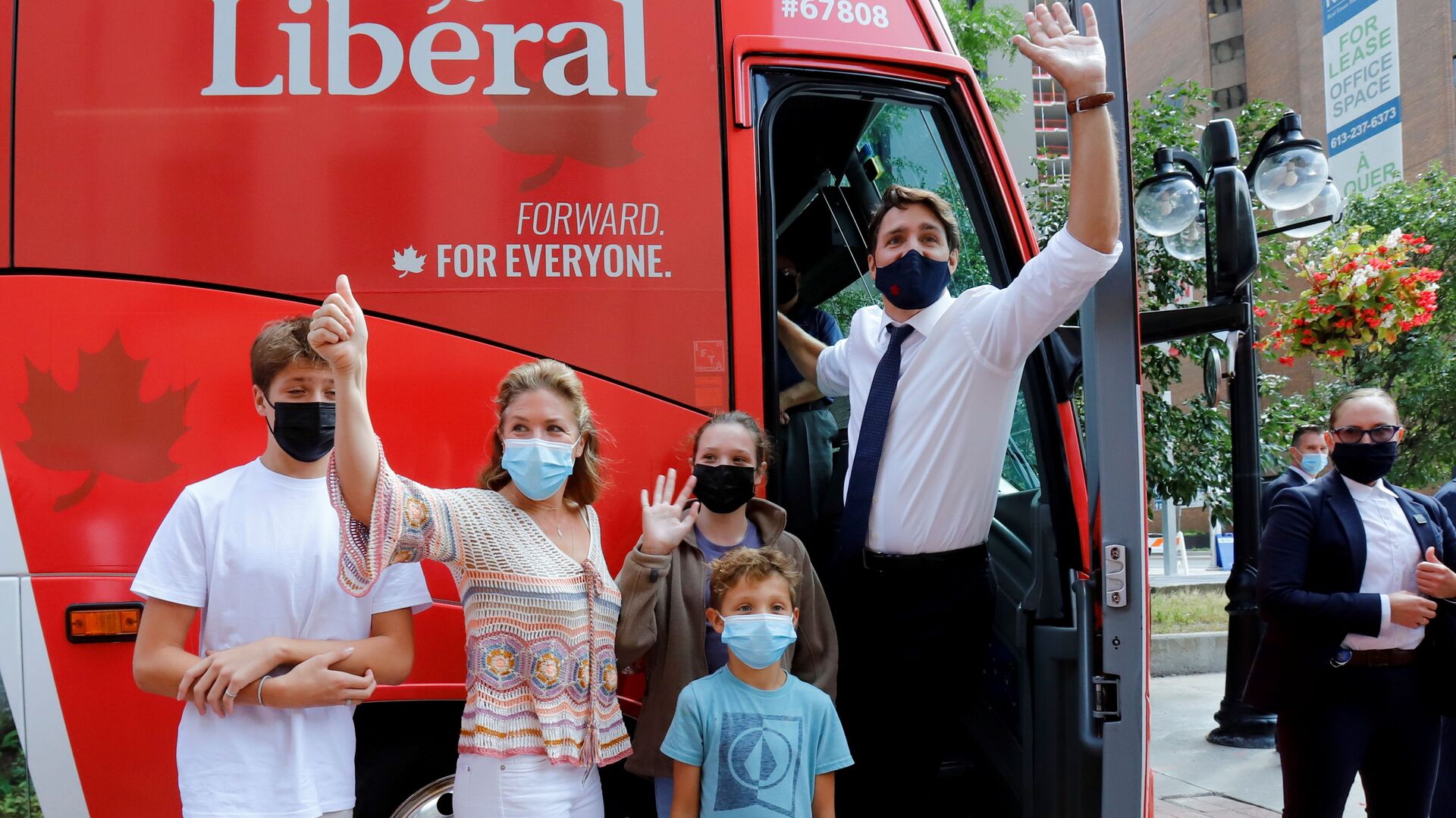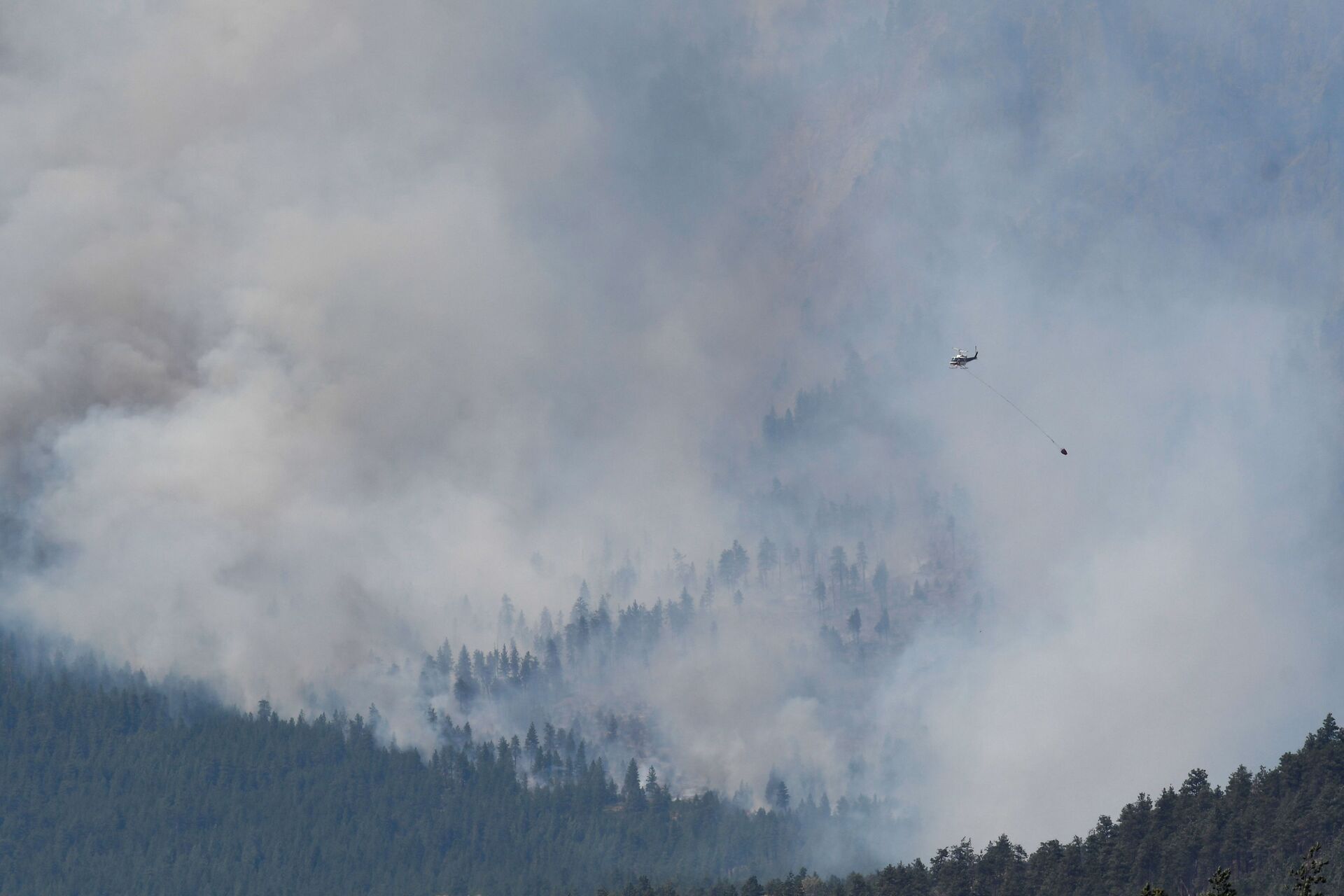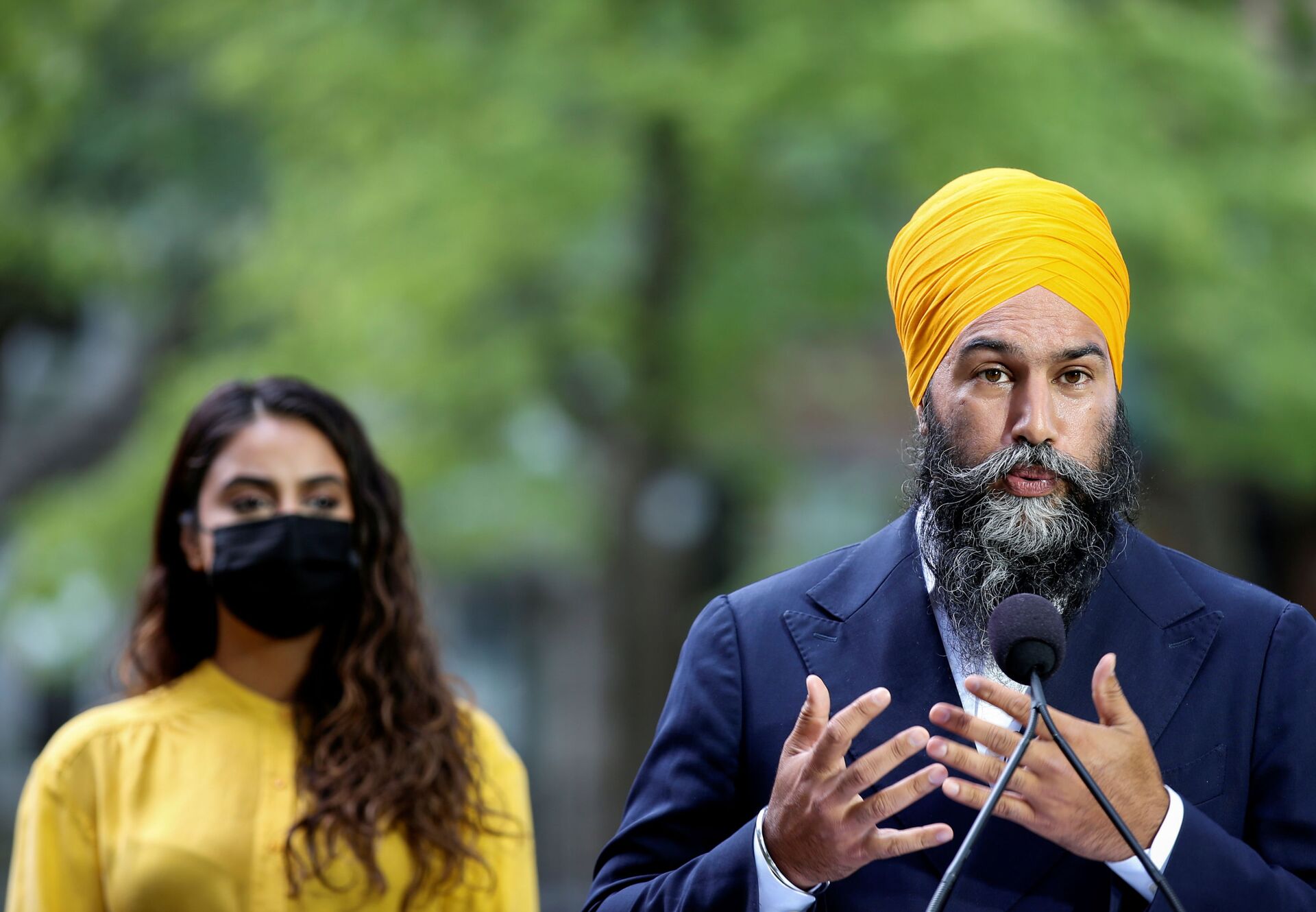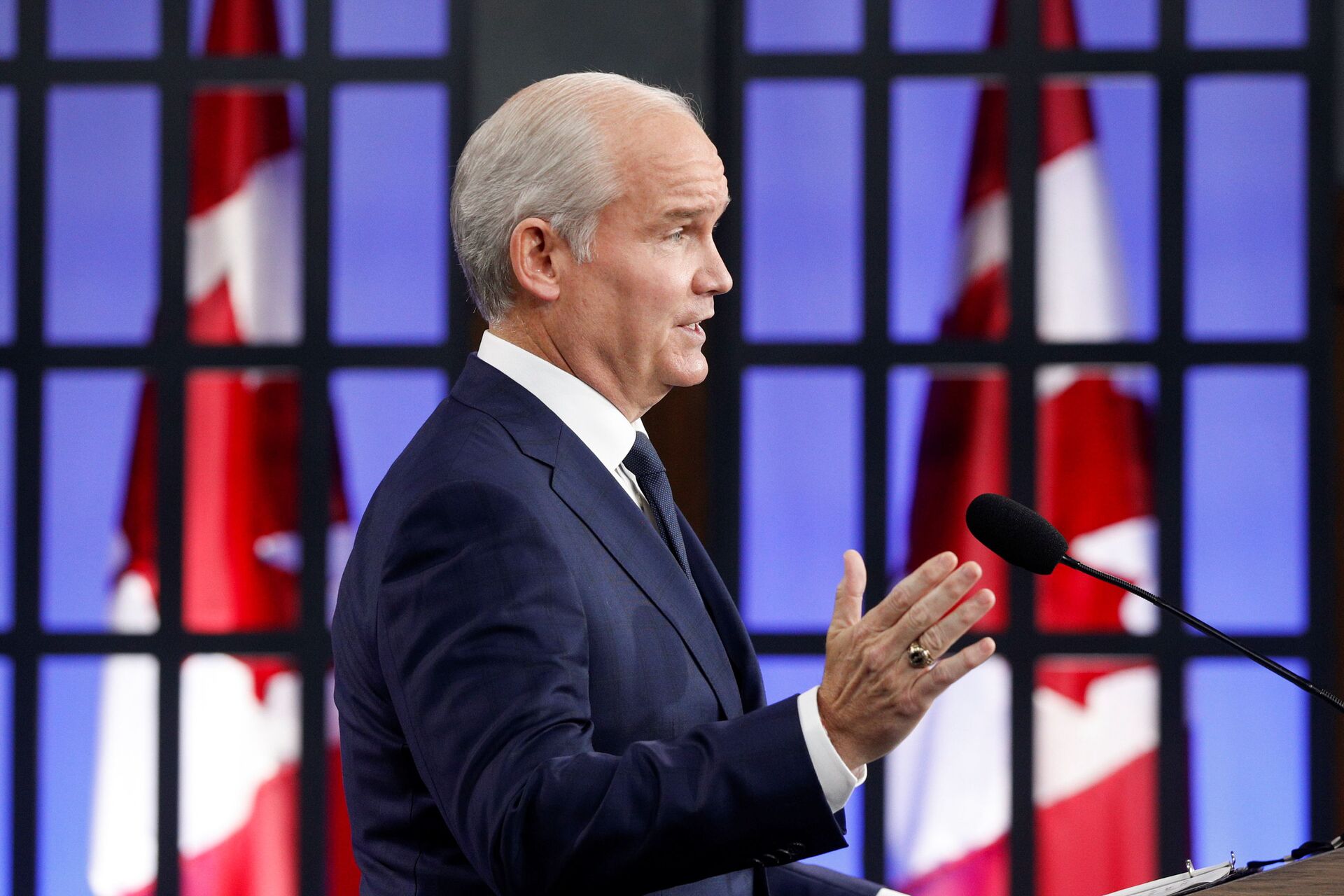Can Justin Trudeau Win Again and What are the Issues for Canadian Electorate Next Month?
12:51 GMT 16.08.2021 (Updated: 14:19 GMT 01.03.2022)

© REUTERS / PATRICK DOYLE
Subscribe
On Sunday, Canadian Prime Minister Justin Trudeau called a snap general election for 20 September. He is riding high in the polls and is hopeful of a third successive general election victory.
Canada’s last election was in October 2019 and the country was not due to have another poll until October 2024.
But Justin Trudeau decided that in order to push ahead with his post-pandemic agenda he needed a working majority in the parliament in Ottawa.
"Canadians need to choose how we finish the fight against COVID-19 and build back better - from getting the job done on vaccines, to having people's backs all the way through to the end of this crisis", Trudeau said after asking the governor general, Mary Simon, to dissolve parliament.
Trudeau’s Liberals are currently ahead in the opinion polls by up to nine percent and he has obviously calculated that he is in with a chance of winning back the parliamentary majority that he lost in 2019, when he lost 20 seats.
It’s a risky strategy, as Theresa May found out in 2017 when she called a snap election, confident she would thrash Jeremy Corbyn’s Labour and increase her majority to allow her to push through Brexit.
It backfired calamitously and she limped on the summer of 2019, unable to push through Brexit and propped up in government by Northern Ireland’s Democratic Unionist Party.
The leader of Canada’s Conservative Party, Erin O’Toole, said: "Justin Trudeau has called an election. That’s Justin Trudeau’s choice. And I hope his decision doesn’t cost Canadians too dearly”.
Canada is currently suffering from a fourth wave of the coronavirus, which has claimed a total of 26,701 lives and infected 1.4 million Canadians.
Canada’s chief medical officer, Dr Theresa Tam, has said voting could be done "safely".
The pandemic is not the only disaster affecting Canada.
British Columbia, on the Pacific coast, has been suffering from a crippling heatwave that has claimed more than 800 lives and led to several wildfires.

A wildfire burns outside of the town of Lytton, where it raged through and forced everyone to evacuate, in British Columbia, Canada, July 1, 2021.
© REUTERS / Jennifer Gauthier
The provinces of Alberta and Saskatchewan - home to a huge wheat farming industry - have been hit hard by droughts.
“After dealing with the stress and uncertainty of a pandemic for the last 17 months I could really go for a Federal Election right now” said no one in Canada.
— Sid Seixeiro (@Sid_Seixeiro) August 15, 2021
But it is Trudeau’s handling of the pandemic and its impact on the economy which will ultimately decide the election, especially in the most populous states of Ontario and Quebec.
Almost 62 percent of Canadians are now fully vaccinated, but around 1,000 new cases a day are being reported across the country.
Together with people across Canada, New Democrats have fought to make a difference in the lives of Canadians during this pandemic.
— Jagmeet Singh (@theJagmeetSingh) August 15, 2021
Our priority has been you, your family, and your jobs - not an election.
Justin Trudeau could have worked for you, but instead, he chose himself. pic.twitter.com/YYomMBgfhX
Felix Mathieu, a political science professor at the University of Winnipeg, told AFP: "This was the only window of opportunity for him because with students' return to school and universities in two weeks, Covid cases will inevitably go up”.
Trudeau’s government has already announced that it plans to reopen the country to foreign travellers on 7 September, but the country’s tourism industry has lost an entire summer.
Let’s keep working to make things better — and leave no one behind.#ForwardForEveryone pic.twitter.com/Fg27JVoNhY
— Liberal Party (@liberal_party) August 16, 2021
Canada’s prime ministers have only ever come from one of two parties - the Liberals and the Conservatives.
Trudeau’s 2015 victory put the Liberals back in power after nine years of Conservative rule under Stephen Harper.
Erin O’Toole, a former Canadian air force commander turned business lawyer, became leader of the Conservatives in August 2020.
It remains to be seen whether he can make inroads into Trudeau’s personal popularity.

Jagmeet Singh, leader of Canada's New Democratic Party, speaks as his wife looks on
© REUTERS / CHRISTINNE MUSCHI
Canada’s third party nationally are the left-wing National Democratic Party, led by Jagmeet Singh, who has remained leader despite losing 15 seats at the 2019 election.
The other most important factor is the Bloc Québécois, a French-Canadian nationalist party who want the province of Quebec to one day secede from Canada.
They won 32 seats in 2019 and will remain a major threat to the Liberals in Quebec.


